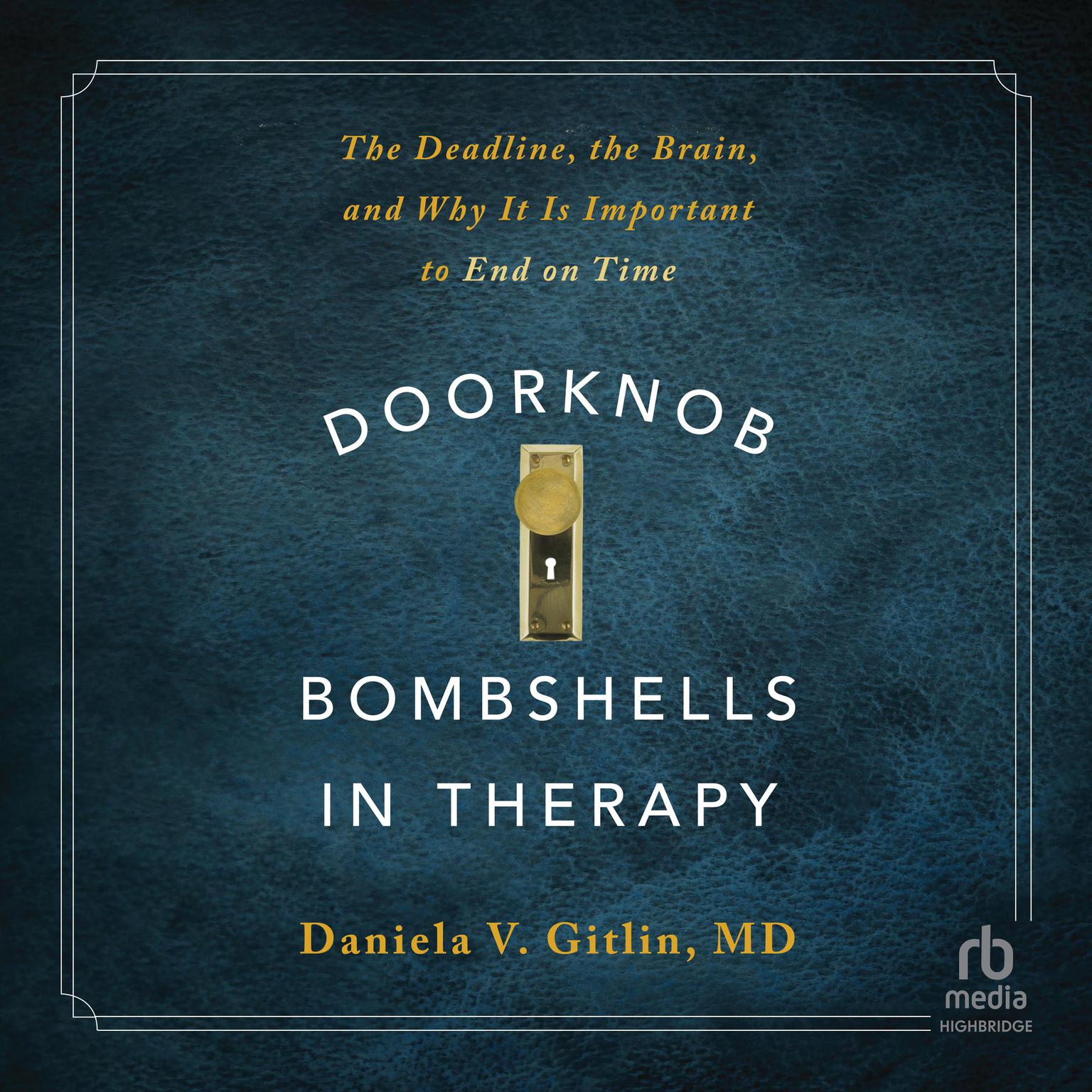 Play Audiobook Sample
Play Audiobook Sample
Doorknob Bombshells in Therapy: The Deadline, the Brain, and Why It Is Important to End on Time Audiobook
 Play Audiobook Sample
Play Audiobook Sample
Quick Stats About this Audiobook
Total Audiobook Chapters:
Longest Chapter Length:
Shortest Chapter Length:
Average Chapter Length:
Audiobooks by this Author:
Publisher Description
What should a therapist do when a patient reveals critical information at the end of a session?
It's a near-universal experience among mental health practitioners: a patient drops a bombshell—a critical disclosure that moves the treatment forward—on their way out, with a hand on the doorknob. This "doorknob moment" creates a stressful dilemma for clinicians, especially when the patient is distraught. Should the clinician end the session on time, or run over and be late for the next patient?
Here, seasoned psychiatrist Daniela V. Gitlin provides clinicians with a clear, evidence-based answer. By conceptualizing the functional differences between patient and therapist in the treatment relationship as a metaphor for the functional differences between right and left cerebral hemispheres, Gitlin's argument yields a comprehensive explanation for why doorknob moments occur, why they are necessary to prevent treatment stagnation, and why ending on time makes patients feel safer to deliver them.
Download and start listening now!
Doorknob Bombshells in Therapy Listener Reviews
Be the first to write a review about this audiobook!


